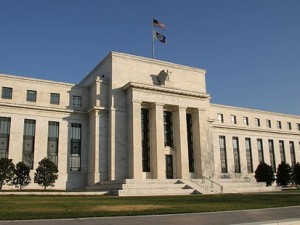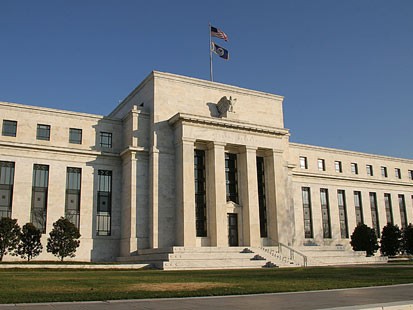 As the United States economy moves into a period of sensitive but steady recovery, economists are expressing their concerns about the low interest rates that the Fed has been supporting. Wall Street analysts and independent economists alike made claims that current interest rates will lead to long-term inflation.
As the United States economy moves into a period of sensitive but steady recovery, economists are expressing their concerns about the low interest rates that the Fed has been supporting. Wall Street analysts and independent economists alike made claims that current interest rates will lead to long-term inflation.
The concerns appear to be recognised by the Federal Reserve, which is considering whether or not its current policy of reducing interest rates is worth continuing for the long term. Analysts believe that Federal Reserve Chairman Ben Bernanke will not introduce any new measures aimed at keeping interest rates as current lows.
Federal Reserve spokespeople have noted that the central bank plans to reduce its programme of purchasing government bonds. Analysts, such as Richard Yamarone, an economist at Argus Research, claim that the Fed’s current policy of injecting new money into the US economy is a ‘pretty dangerous game’ in the current climate.
The Federal Reserve is currently involved in a $1.2 trillion programme designed to reduce interest rates and increase lending. The bank’s efforts have largely worked, with mortgage lending and residential construction increasing throughout the US and economic activity slowly but steadily resuming.
Balancing that economic progress with a plan for warding off inflation is a sensitive and difficult matter, and one that many analysts believe the Fed may struggle to get right. A long-term increase in interest rates could reverse the progress made in the struggle to grow the US economy by discouraging lending and halting construction.
Aside from residential construction, several areas of the United States’ economy are beginning to show signs of a long-term recovery. The Commerce Department claims that orders for costly goods increased by 1.8 percent in May and consumer spending increased steadily over the last two quarters.





